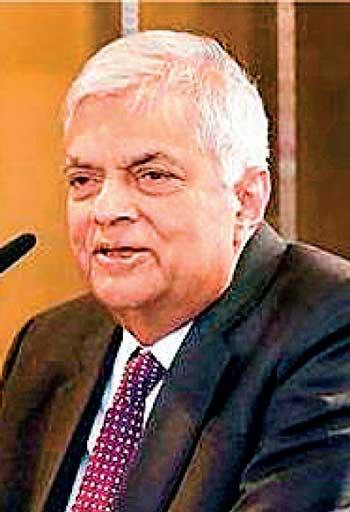Vital to adhere to agreement with IMF: Wickremesinghe
28 August 2024 06:28 am Views - 1030
‘‘Some argue we should change or discard the agreement, but that’s unrealistic. The path we agreed upon with the IMF is the only viable one, and it has provided us significant relief, stretching payments and giving us time until 2042 to adjust - President Ranil Wickremesinghe

Noting it “wasn’t easy to secure”, Wickremesinghe reiterated that the government negotiated with numerous parties, including the IMF, World Bank (WB), Asian Development Bank (ADB), and a diverse group of creditors. Among them were countries in the Paris Club, as well as India and China, who took different approaches.
“We had to navigate these complex negotiations. Despite the challenges, the agreement we reached has led us out of crisis and brought hope for growth and relief to the people,” said Wickremesinghe addressing the 37th Annual Conference of the Organization of Professional Associations of Sri Lanka (OPA) in Colombo this week.
He noted that for instance, energy prices have stabilised, and the country is seeing positive results in other areas.
“Some argue we should change or discard the agreement, but that’s unrealistic. The path we agreed upon with the IMF is the only viable one, and it has provided us significant relief, stretching payments and giving us time until 2042 to adjust,” asserted Wickremesinghe.
He went on to stress that transforming the economy from being import-dependent to export-oriented is essential. For this he said, key laws to support the transition including the Public Debt Management Act, the Public Finance Act, the Central Bank Act, and the Economic Transformation Act have been brought in.
“For the first time, policy is enshrined in law, meaning it cannot be easily changed by shifts in leadership.”
Transforming the economy from being import-dependent to export-oriented and competitive requires increased productivity, particularly in sectors such as apparel, where efforts must be made towards moving to high-end markets and backward integration, he said to a fully packed audience.
The President stressed that there is a need to modernise agriculture, capitalising on the growing global demand for food.
With 300,000 acres available for cultivation and plans to increase paddy productivity, he noted there is room to free up land for other crops, driving value addition in agriculture and dairy products.
Tourism is another key area, with plans to double tourist arrivals and increase revenue per night.
“Expanding logistics, advancing technology-intensive manufacturing, and fostering digitalisation, including AI, are also critical. We are establishing four new universities focused on technology to build the necessary human resources,” he said.
Wickremesinghe asserted that ultimately, the challenge lies in making a start.
“We have the talent, and with the right environment, we can succeed. The decision on which path to take is in your hands, and I trust you will make the right choice,” he said.